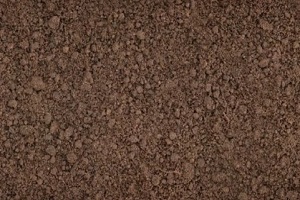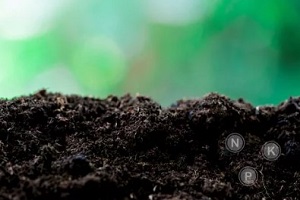 Hey there, soil savvies and garden newbies alike! Today, we’re talking about our good old friend, loam soil. You’ve probably heard it’s the gold standard of gardening; great for growing just about anything, right?
Hey there, soil savvies and garden newbies alike! Today, we’re talking about our good old friend, loam soil. You’ve probably heard it’s the gold standard of gardening; great for growing just about anything, right?
While it’s true that many plants love the balanced blend of sand, silt, and clay found in loam, it’s not a one-size-fits-all solution. Let’s dive into what loam soil isn’t great for so you don’t end up with wilting tomatoes or a shaky shed. Get ready to become a true soil connoisseur!
Understanding Loam Soil
Let’s kick things off by getting dirty with what loam soil is, like the quality loam soil provided by Dirt Connections. Picture this: a super combo of sand, silt, and clay that brings together the best of all worlds. This fab trio gives loam its unique texture, a bit like crumbled chocolate cake, and makes it a hot favorite for gardeners and farmers.
So why is loam often the MVP in the soil world? Well, it drains well thanks to the sand, retains moisture and nutrients thanks to the silt, and it’s nutrient-rich, all thanks to the clay. It’s a bit like a superfood smoothie for plants, providing them with all they need to grow strong and healthy. Its loose and crumbly texture makes it easy for plant roots to penetrate and access those vital nutrients.
But here’s where things get a bit sticky. While loam might be the ultimate dream team for many plants, it’s not always the perfect match for every use or plant species. And that’s where we must throw a curveball to some misconceptions about our much-loved loam.
Misconceptions about Loam Soil
Alright, before we move on to where loam falls short, let’s debunk some common myths floating around. Some folks reckon that loam is so swell for many plants it must be the go-to for everything under the sun. Well, that’s not exactly the full picture.
 While loam soil is a champ in many arenas, it doesn’t always hit a home run. Different situations call for different types of soil. Each soil type, just like our footgear, has its unique characteristics and advantages that make it suited to specific scenarios.
While loam soil is a champ in many arenas, it doesn’t always hit a home run. Different situations call for different types of soil. Each soil type, just like our footgear, has its unique characteristics and advantages that make it suited to specific scenarios.
That brings us to a crucial point – just because loam is often the MVP doesn’t mean it’s the universal soil solution. There are a bunch of scenarios where other soils can outperform loam. Let’s dig into that, shall we?
What Not to Use Loam Soil For
Loam is generally a no-no when building foundations and heavy structures. It tends to compact under pressure and isn’t quite stable enough to hold up your dream house or that DIY shed you plan on building.
Next, using loam isn’t the best idea if you’re living in an area that tends to turn into a soggy mess after some rain. It could lead to waterlogging, which is not a situation you’d want to find yourself in.
On to the plant world. If you’re into growing veggies, particularly root crops and tubers like potatoes, carrots, or turnips, and you’re located somewhere that’s more “rainforest” than “desert,” you’ll want to reconsider using loam. These veggies need soil that drains faster than you can say, “damp spuds.” If they’re left sitting in wet soil, they’re prone to rot, and nobody wants a garden full of rotten veggies.
What about our prickly friends, the cacti? These guys are desert dwellers and prefer lighter, drier soil. They find loam a bit too heavy and slow-draining. It’s like trying to run in soggy sneakers; it just doesn’t work.
Then there’s the native plant angle. Some of them have adapted just fine to their local soil conditions, thank you very much, and aren’t interested in your loamy offerings. They’re the rugged individualists of the plant world.
Feeling a bit overwhelmed? Don’t sweat it. There are apps out there, like NatureID, that can help you determine the best soil mix and nutrients for your specific plants. It’s like having a soil guru in your pocket!
The Importance of Using the Right Soil
Now that we’ve put a few myths to rest and set the record straight about where loam isn’t top dog, let’s chat about why it’s so important to get your soil type right. You see, using the wrong soil might get there in the end, but it will be a lot of unnecessary effort and quite a mess along the way.
In the plant world, using the wrong soil can be like feeding them a diet they can’t digest. It can affect their health, growth, and ability to fend off pests and diseases. Imagine trying to run a marathon after a meal of heavy junk food. Not ideal, right? That’s how plants feel in the wrong soil.
 In the construction world, using the wrong soil can shake the foundations of your project. Remember, a house is only as strong as what it’s standing on. So, you wouldn’t want to build your dream home on soil that isn’t up to the task.
In the construction world, using the wrong soil can shake the foundations of your project. Remember, a house is only as strong as what it’s standing on. So, you wouldn’t want to build your dream home on soil that isn’t up to the task.
This is why soil testing is so important: it’s like a cheat sheet that tells exactly what type of soil you’re dealing with and what you need to add or remove to make it perfect for your project. It’s a bit like a nutritionist for your garden or a surveyor for your building site.
Trust Dirt Connection for Quality Loam Soil
Now, if you’re feeling inspired to embark on a new project but don’t know where to start with all this soil business, don’t sweat it. Our friends over at Dirt Connections have got you covered. With a whopping 30 years of experience in the game, they’re the soil whisperers of the construction world. Whether you’re planning a remodel, a new build, or anything in between, they have the know-how and the materials you need.
Need a specific soil type? They’ve got it. Need some demolition, excavation, or material hauled off? Consider it done. They even offer stormwater management and waste removal services, making them a one-stop shop for all your construction needs. And did we mention their certified dump sites and sources for new and durable materials? Yeah, they’ve got those too.
So, why wait? Contact Dirt Connections and let them make your soil and construction dreams a reality. Let’s build something awesome together, one scoop of dirt at a time.
Summary

Dirt Connections was started with one goal in mind: providing quality residential and commercial construction services to clients on time and on budget. Reach out for more information on how we can support your next project.
For your convenience our estimates are free and by appointment. Call 703-940-9949 for a free estimate today!










































